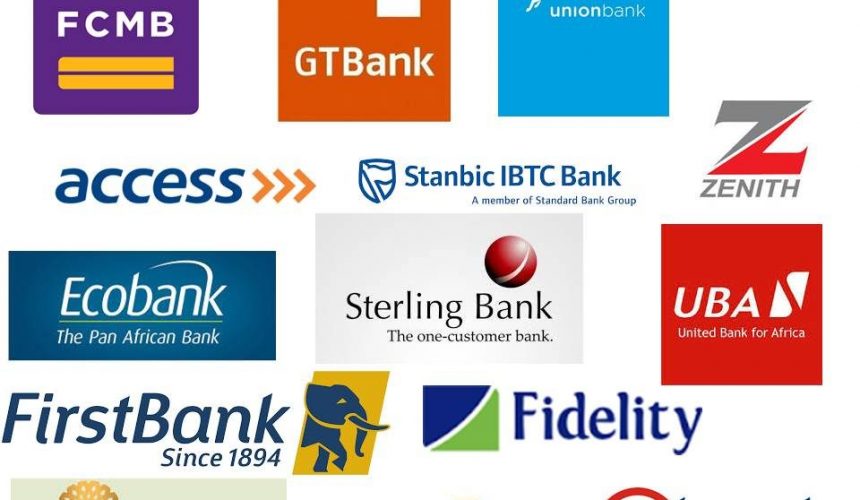By Ali Smarts
Despite a poor operating environment and terrible economic headwinds that adversely affected certain business ventures in the outgoing year, most of the Tier 1 banks had a bullish run in their year end as shown in their balance sheets and also looks good to do even better this year.
In the majority of the banks’ balance sheet and financial reports that formed this assessment based on their respective assets, liabilities, equity at the end of the accounting period, what stood them out is their consistency thus far.
Although in its assessment, the National Bureau of Statistics revealed that the banks generally recorded slowed growth, at 20.06 per and 25.5 percent recorded in the second quarter of 2022 and 2021, respectively, to 12.03 percent during the period under review, and which it said is the slowest quarterly growth since the first quarter of 2021 when the economy was recovering from the COVID-19 pandemic, there were a few who stood out of the pack.
Zenith Bank, First Bank, Access Bank, FCMB, Fidelity Bank, Wema Bank
Zenith Bank is the Number One Bank in Nigeria by Tier-1 Capital with an asset base which rose from N6.347 trillion to N8.481 trillion last year, its audited financial statements showed. This year looks promising as according to the Group Managing Director/CEO of Zenith Bank Plc, Ebenezer Onyeagwu, the financial institution is poised for more exploits.
First Bank, First City Monument Bank (FCMB) and Fidelity Bank were also among the first three banks leading as the best-performing commercial banks in Nigeria in the Q3 of 2022.
This is just as Wema Bank Plc’s stocks emerged as the best-performing financial stocks on the Nigerian Exchange during the 2022 financial year.
According to the report, Wema Bank’s share price appreciated by a whopping 441.7 percent. The bank recorded a healthy 51% increase in gross earnings in the first nine months of 2022 and a 31% increase in post-tax profit. Investors rallied around the bank’s stocks despite a general downturn in most banking stocks during the year.
An analysis of the banks’ equity and financials revealed that they made a sum of N298.84 billion as profit before tax between July and September of 2022, showing an increase of 29.9 per cent compared to N228.54 billion recorded the year before.
The banks remained strong despite solid headwinds, in which Nigeria’s GDP is slowing to 2.25 per cent from 3.54 per cent in the previous quarter and 4.03 per cent in the same quarter of 2021.
Besides, the banks witnessed a 5 per cent increase in customer deposits during the period under review to stand at N43.68 trillion as of September 2022 from N41.61 per cent as of June 2022. Four of the 13 banks recorded positive growth in their share price in the third quarter of this year in the local equities market.
Real estate:
Like banks, another sector mostly poised for the big league this year is the real estate market. Interestingly, real estate experts have projected some major factors that would influence the development of the real estate market in 2023 while citing inflation, general elections, soaring housing prices as some of the causative factors that would spur growth and sustain the economic drivers of the real estate sector in 2023.
One of these experts, Bismarck Rewane, CEO at Financial Derivative Company (FDC) projected a sustained growth driver for the real estate sector in 2023, noting that the real estate sector of the Nigeria economy will expand by 5.2 per cent in 2023.
According to Rewane, the sustained growth of the real estate sector would increase demand for real estate assets.
The FDC boss, noted that the sector’s contribution to GDP would increase by 6.5 per cent while contending that this growth would be sustained in the new year due to high population and urbanisation growth would be the major drivers of the trajectory in both short and long terms.
The expansion, according to Rewane, will happen on the back of the sector’s sustained growth, among other drivers.
The economic analyst noted that the ballooning population in urban cities would contribute to the development of the housing sector in 2023, adding that, the present challenge had been traced to Nigeria’s population growth which is currently at 2.6 per cent per annum and currently outpacing the provisional housing system in the country.
Also the Bank of Industry (BOI) in a report on Nigeria’s housing sector, affirmed that, “with a growing urban population, increasing construction costs, and declining household income and access to affordable housing is becoming more difficult for millions of citizens.”
The BOI, however, outlined some critical areas to be addressed to reposition the housing sector in Nigeria, stressing that adequate financial intervention in the housing value chain was required to boost development in the sector.
“Increased partnership with the organised private sector is crucial to unlocking opportunities in the real estate market,” the BOI report stated.
A report by the Federal Mortgage Bank of Nigeria titled “Institutional turnaround for the next level,” indicated that, although the federal government budgeted N470 billion for housing in 2022, the sector would require trillions of naira to close Nigeria’s housing gap.
The FMB report showed the estimation of 206 million persons in Nigeria, which about 95.1 million lived below the poverty line, and as such, it was difficult for them to have access to their own homes.
The executive director, Housing Development Advocacy Network, Festus Adebayo, noted that the housing sector in 2022 performed well solely for those at the top, particularly, in the areas of luxury homes and commercial real estate; however, it has failed in the area of providing affordable housing.






Comment
No comments found.